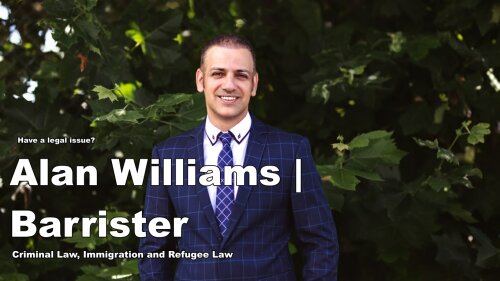Best Arrests & Searches Lawyers in Auckland
Share your needs with us, get contacted by law firms.
Free. Takes 2 min.
List of the best lawyers in Auckland, New Zealand
About Arrests & Searches Law in Auckland, New Zealand
In Auckland, New Zealand, the law allows police officers to arrest or search individuals under certain conditions. The rights of the individual being arrested or searched are protected under the New Zealand Bill of Rights Act 1990. This Act outlines the proper procedures that police officers must adhere to during an arrest or search, ensuring the conduct is fair, reasonable, and proportionate to the circumstances.
Why You May Need a Lawyer
Individuals might need legal advice or representation in situations where they believe their rights were violated during an arrest or search. This could relate to instances of undue force, improper procedure, or lack of a reasonable cause. Furthermore, legal representation may be necessary if charges were initiated following an arrest. Lawyers can provide guidance, help individuals understand their rights, and create a strong defence strategy when needed.
Local Laws Overview
The most relevant legislation relating to Arrests & Searches in Auckland includes the New Zealand Bill of Rights Act 1990 and the Search and Surveillance Act 2012. The Bill of Rights Act protects individuals from unreasonable search and seizure and guarantees the right to legal representation. The Search and Surveillance Act outlines when and how searches can be conducted, including the requirements for obtaining search warrants.
Frequently Asked Questions
1. Can police search me without a warrant?
In certain situations, police can search without a warrant, for example, if they reasonably suspect a crime is being committed, or there is evidence of a criminal offence in a vehicle.
2. What constitute an unreasonable seizure or search?
An unreasonable seizure or search could involve searching you or your property without valid reasons, searching outside the parameters of a warrant, or using excessive force during the process.
3. Can I refuse to be searched?
Generally, you have the right to refuse a search unless the police have a warrant, or if specific circumstances under the Search and Surveillance Act 2012 apply. However, always assert your rights respectfully and non-aggressively.
4. Do I have the right to an attorney during questioning?
Yes, according to the New Zealand Bill of Rights Act 1990, everyone has the right to consult and instruct a lawyer without delay and to be informed of that right.
5. What should I do if I believe my rights were violated during an arrest or search?
If you believe your rights were violated during an arrest or search, you should seek immediate legal advice, note down all details of the incident, and lodge a formal complaint with the Independent Police Conduct Authority.
Additional Resources
The Independent Police Conduct Authority and the New Zealand Law Society can provide helpful resources if you're seeking information or advice on arrests and searches. Additionally, local community legal centres offer free advice and can point to useful resources.
Next Steps
If you need legal assistance concerning an arrest or a search, the first step should be to secure representation or legal advice from a qualified lawyer. Gather any evidence or details about the incident and discuss your situation fully with your lawyer. They can then guide you through the process of dealing with the situation, whether that involves contesting an illegal search or arrest, or representing you in court.
Lawzana helps you find the best lawyers and law firms in Auckland through a curated and pre-screened list of qualified legal professionals. Our platform offers rankings and detailed profiles of attorneys and law firms, allowing you to compare based on practice areas, including Arrests & Searches, experience, and client feedback.
Each profile includes a description of the firm's areas of practice, client reviews, team members and partners, year of establishment, spoken languages, office locations, contact information, social media presence, and any published articles or resources. Most firms on our platform speak English and are experienced in both local and international legal matters.
Get a quote from top-rated law firms in Auckland, New Zealand — quickly, securely, and without unnecessary hassle.
Disclaimer:
The information provided on this page is for general informational purposes only and does not constitute legal advice. While we strive to ensure the accuracy and relevance of the content, legal information may change over time, and interpretations of the law can vary. You should always consult with a qualified legal professional for advice specific to your situation.
We disclaim all liability for actions taken or not taken based on the content of this page. If you believe any information is incorrect or outdated, please contact us, and we will review and update it where appropriate.














